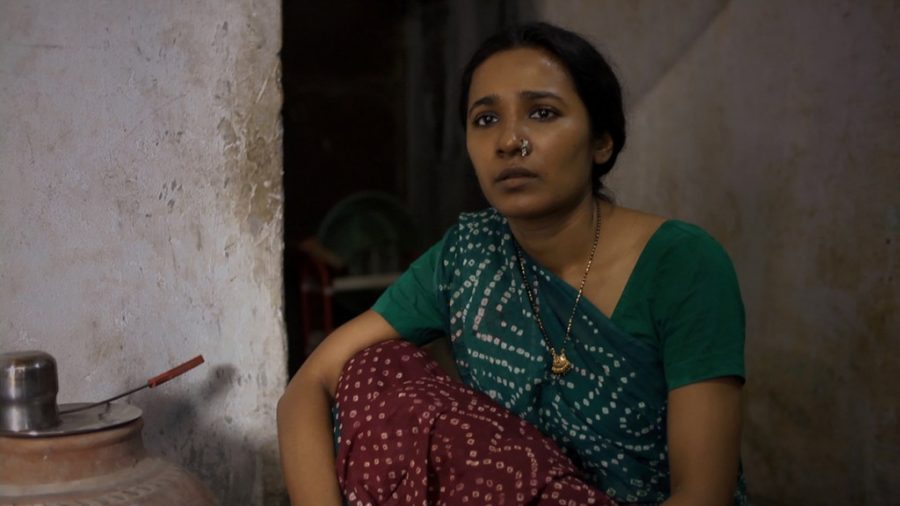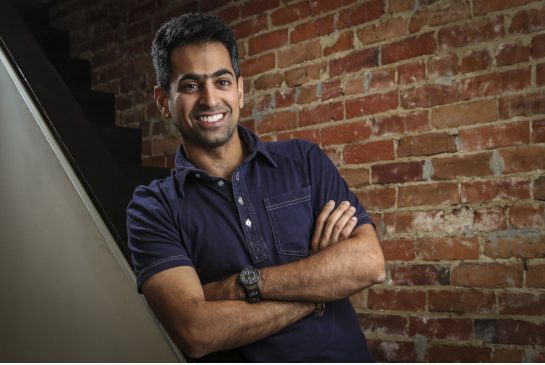

Richie Mehta is the director of "Siddharth," a powerful new film about Mehendra (Rajesh Tailaing), a chain wallah on the streets of Delhi, who sends his young son Siddharth to a factory to work against his wife Suman's (Tannishtha Chatterjee) wishes. When Siddharth doesn't come home one day, Mehendra and Suman come to realize that he was most likely kidnapped by child traffickers. We talked to Mehta and Chatterjee about the film, its origins, and its characters.
What inspired you to make the film "Siddharth?"
Richie: I basically met a taxi cab driver in Delhi and he asked me for help to find his kid. He asked me where Dongri was and he told me he sent his 12-year-old to work one day. He never came home and he believes he was kidnapped. He had been asking people for help for over a year. I did a google search of Dongri but by then, after a year, it was too late. That started it all. The big inspiration was the fact that this guy was emotionally resilient. He was going to work forever on the streets while still pursuing this.
Did you encounter more stories similar to this while filming?
Many, but mostly by researching. It’s not uncommon there. Most of these kids go unaccounted for because they're not registered. The man I met didn’t know how to search, and I think that's a common thing. At one point I even had a conversation with a trafficker and he said he wouldn’t do it if he didn’t make money.
Did you encounter any difficulties while filming?
The normal slew of film suff that usually goes along with a film shoot but not difficulties with what you might think shooting in India. We perfected how we wanted to shoot. It was a very small crew of 11. We did a lot of things to minimize interaction with our environment, but we also met a lot of people who respected us. Honestly, it’s become a second home to me and the team was local, so it made it simpler to film there.
What would you say is the ultimate goal or message you wanted to reach with this film?
I think there's a few. All of the work I do deals with economic disparity. I think the main point is about the difference between here and there. And while there are many differences, there’s still a point of entry for people from here as well. The life is foreign to me but throughout the film you find points of entry and you begin to understand that way of life and relate to it.
Were there any scenes you felt particularly proud of that just didn’t make the final cut?
Here's the thing, this has rarely been done. We credited actors in the deleted scenes in the credits. There were a few scenes I liked but I didn’t like them enough to keep them. I don’t actually miss anything to be honest. I like them but they don’t add to the point. There are even scenes that could be removed and the plot would still progress.
Tannishtha, how did you prepare for the role of Suman?
Tannishtha: Richie and I were discussing things about life and he wanted me to be a part of this project he was working on. He discussed this whole idea of him meeting that person in Delhi and he really wanted to tell it. I was a part of the draft of the script and I was familiar with the character backwards. A few months before the start date to shoot, my schedule became very problematic. So to be honest, I couldn’t give it the kind of preparation I would have liked. But I was so much a part of the development that I knew the character very well.

What was it like working with Rajesh Tailang (Mehendra)?
He’s from the same drama school I’m from. It was very easy and collaborative. We didn’t have to work hard to become compatible, it all fell into place.
What drew you to the role in the first place?
Richie’s a dear friend but more than that, it’s a universal story of a father and mother who've lost their child. It also speaks something about life where sometimes something awful happens but you don’t come to terms early on because you live in hope which is both beautiful and horrifying. They live in hope and slowly realize their son may not come back. However horrible an incident is you still move on and this is universal. It’s a terrible event that happens in the film, but it’s not a hopeless ending. What drew me to the script is actually the factor that this horrible realization slowly seeps in and then you move on.
How would you characterize Suman? What kind of woman would you say she is?
She’s quite ambitious about her kids. She believes people have to work for a better life, but on the other hand she’s also simple. She's a mother. She’s a typical woman who’s caught between different worlds and contradictions and that makes her interesting. In some ways she’s more practical than Mehendra. In the film a lot of the more practical ideas come from her. When she decides to take a picture of her little girl because they never had one of their son, that's all her idea.
How would you say Mehendra and Suman’s outlook or reactions to the film’s situation are different from one another?
Suman’s reaction is more complex because she’s more practical but also can be illogical. Like when she starts blaming Mehendra. But this is typical when you don’t know how to bring out your frustration. It comes out on him. Mehendra is more simple. He’s following the part of searching for his son, but he also wants to support his family. His emotions are simpler. Suman's are more complex. A lot of it has to do with her social standing. She's not capable enough to go outside on her own but she wants to because she has a mind of her own.
Richie: I'd also like to comment. You have two characters with separate lives. Shes in the house the majority of the time, so she can only show her anger at him and not the world. Mehendra, on the other hand, walks the streets of Delhi every day as work. He has the world to show his anger to. At the end of the film, his resolution is found but not hers. We don't see exactly how she's feeling at the end. It would be a whole other film if told from her perspective.
You can read our review of "Siddharth here.